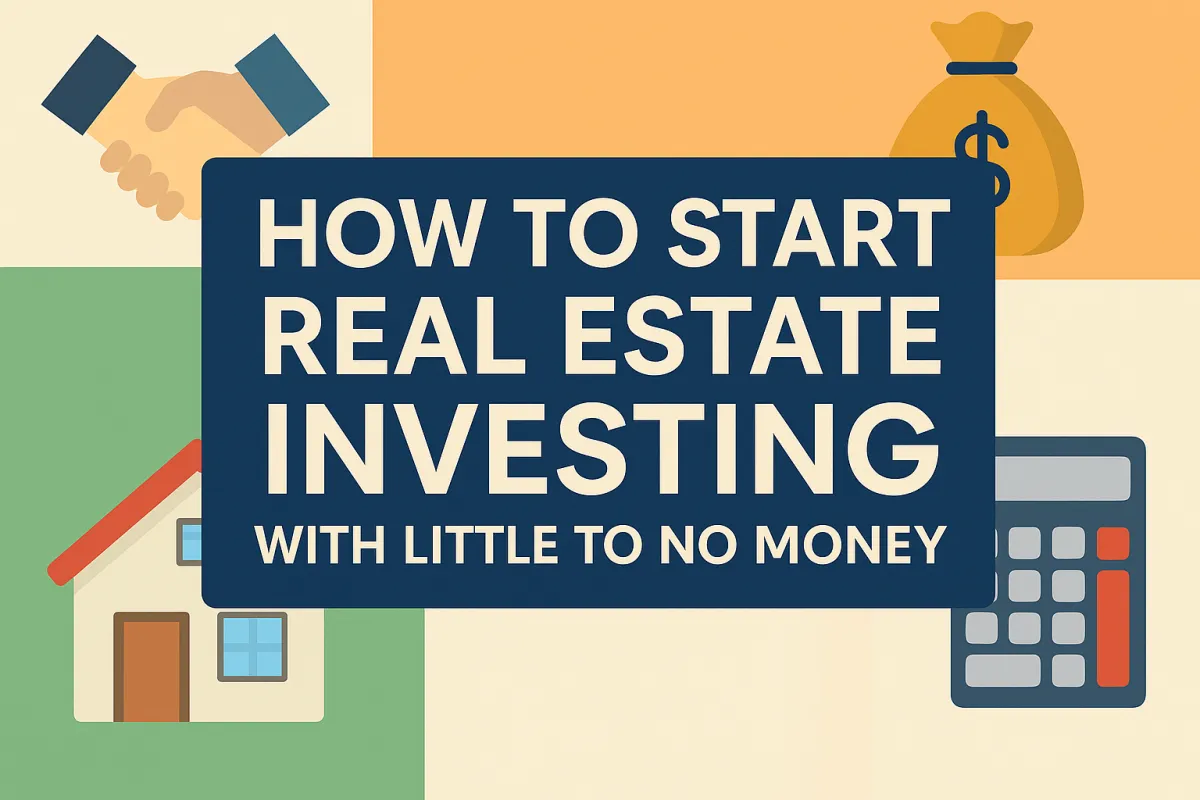
The Profit Playbook: How to Start Real Estate Investing with Limited Funds
The Profit Playbook: How to Start Real Estate Investing with Limited Funds
Introduction
Think you need stacks of cash or perfect credit to start investing in real estate? Think again. The truth is, most successful investors didn’t begin with deep pockets—they started with resourcefulness, strategy, and grit. If you're eager to break into the game but feel held back by a lack of capital, this guide will show you exactly how to get started.
1. Shift Your Mindset from "I Can't" to "How Can I?"
Most people stop at the phrase, “I don’t have the money.” But smart investors ask, “How can I structure this deal?” When you realize money doesn’t have to come from you, doors open up. There are more ways to fund a deal than you think—it just takes creativity and persistence.
2. Wholesaling: Control Without Ownership
Wholesaling is one of the lowest-cost ways to get into real estate.
You find distressed properties.
You lock them under contract below market value.
You assign the contract to a cash buyer for a fee.
With no need to buy, hold, or renovate, you earn income while learning the market and building a buyer’s list—all with minimal capital risk.
3. Partner Up: Leverage Skills or Hustle
If you’re short on cash but rich in hustle, find a partner with capital.
Bring the deal, manage the rehab, or handle the day-to-day.
Structure a joint venture where you split profits based on value contributed.
Investors are always looking for boots on the ground. Show you’re serious and bring something to the table.
4. Use Private or Hard Money
Private money (from individuals) and hard money (from lenders) are tools many use to fund entire deals—including purchase and rehab costs.
Yes, they come with higher interest rates.
But speed and access make up for it—especially if you’re flipping.
Structure deals where the equity is strong enough to cover these costs and still profit.
5. Explore Creative Deal Structures
You can secure property without traditional financing:
Seller Financing: The seller becomes the lender.
Lease Option: Rent now, buy later—control today, own tomorrow.
Subject-To Deals: Take over existing financing without getting a new loan.
These strategies are perfect when you're low on capital but high on negotiation skill and creativity.
6. Tap into Assets You Already Have
A HELOC (home equity line of credit)
A self-directed IRA
A 401(k) loan
Even low-limit credit cards for small renovations or marketing
Using what you already have, strategically, can help bridge the capital gap on your first deal.
7. Build a Lean, Repeatable Marketing System
Instead of spraying money, build a system:
Driving for dollars (gas + time = motivated leads)
Cold calling or texting
Handwritten letters
These grassroots methods can yield your first few deals with just a few hundred bucks a month—or less.
Conclusion
You don’t need a six-figure bank account to get started in real estate. What you need is a plan, hustle, and creativity. Whether you’re wholesaling, partnering, or using seller financing, there’s always a way in. Start where you are, use what you have, and take action. Deals don’t care about your bank balance—they care about your execution.

